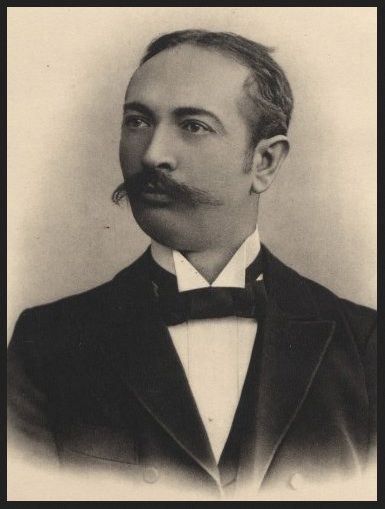Józef Piłsudski in German prisons

He was not able to see Aleksandra Szczerbińska and his daughter Wanda until the afternoon. After that, events moved quickly. On 11th November Józef Piłsudski took over the leadership of the Polish military high command from the Regency Council. The next day he issued a statement that the Council had requested him to form a national government.
Van Gülpen stayed in a private residence in Warsaw for two days. Before leaving for Berlin, he received a photo with a personal dedication from Piłsudski On his return journey a special compartment was placed at his disposal, reserved “for the government only”. Shortly afterwards Count Kessler was appointed German envoy to Poland. He stayed in Warsaw from 20th November to 15th December 1918, where, amongst others, his portfolio included the solution of all problems relating to the repatriation of German troops.
A few months later, in March 1919, Józef Piłsudski gave an interview to the French newspaper “Le Petit Parisien” in which he left no doubt as to what he thought about the German diplomat Count Kessler and his share in his liberation from prison. For Piłsudski it was – not without reason – simply a part of a political game:
“I knew him personally and was involved with him during the war as leader of the Legions”, said Piłsudski. “He knew the revolutionaries would set me free. He wanted to give me the impression that he had freed me, and no doubt imagined that he would harm me in the eyes of the coalition, whereas the two years of imprisonment in Germany would be forgotten.”
Krzysztof Ruchniewicz, June 2018
The quotations come from:
P. van Gülpen, Moje Spotkanie z Piłsudskim (My Meeting with Piłsudski), in: “Niepodległość”, vol. 14 (July–December 1936), pp. 441–447;
Interview in “Le Petit Parisien” (16.03.1919), [in:] Józef Piłsudski, Pisma zbiorowe (Collected Writings), vol. 5, Warsaw 1937, p. 66;
Wacław Lipiński, Uwolnienie Józefa Piłsudskiego z Magdeburga według relacji hr. Harry Kesslera (The Liberation of Józef Piłsudski from Magdeburg based on the report by Count Harry Kessler), in: “Niepodległość”, vol. 18 (November–December 1938), pp. 462–469;
M. J. Wielopolska, Więzienne drogi Komendanta. Gdańsk-Szpandawa-Wesel-Magdeburg (The Commander's Prison Journeys, Danzig-Spandau-Wesel-Magdeburg), Krakau 1939;
Aleksandra Piłsudska, Wspomnienia (Memoirs), London 1960;
Wacław Jędrzejewicz, Kronika życia Józefa Piłsudskiego 1867-1935 (The Life of Józef Piłsudski 1867-1935), vol. 1: 1867–1920, London 1977.
Exhibition:
The exhibition in “Ravelin 2” shows the history of the fortress and the citadel of Magdeburg. Also exhibited is a miniature replica of the wooden house in which Piłsudski was imprisoned.
The President of the Federal Republic of Germany Frank-Walter Steinmeier in Warsaw (german):
http://www.bundespraesident.de/SharedDocs/Reden/DE/Frank-Walter-Steinme…




![Flyer to protest against the illegal internment of Piłsudski, 1917 Flyer to protest against the illegal internment of Piłsudski, 1917 - Flyer: On Sunday 29th of this month we will gather in front of the Adam Mickiewicz Monument at 11 am to protest against the illegal internment of Commander Józef Piłsudski and Chief of Staff of the First Brigade, Lieutenant Colonel [Kazimierz]. Sosnkowski](/sites/default/files/styles/width_100_tiles/public/assets/images/obywatele-obywatelki-inc-dnia-29-bm-w-niedziele-zbieramy-sie-o-godz-11-rano-na-0_kopie.jpg?itok=hxoxe_Lq)














































